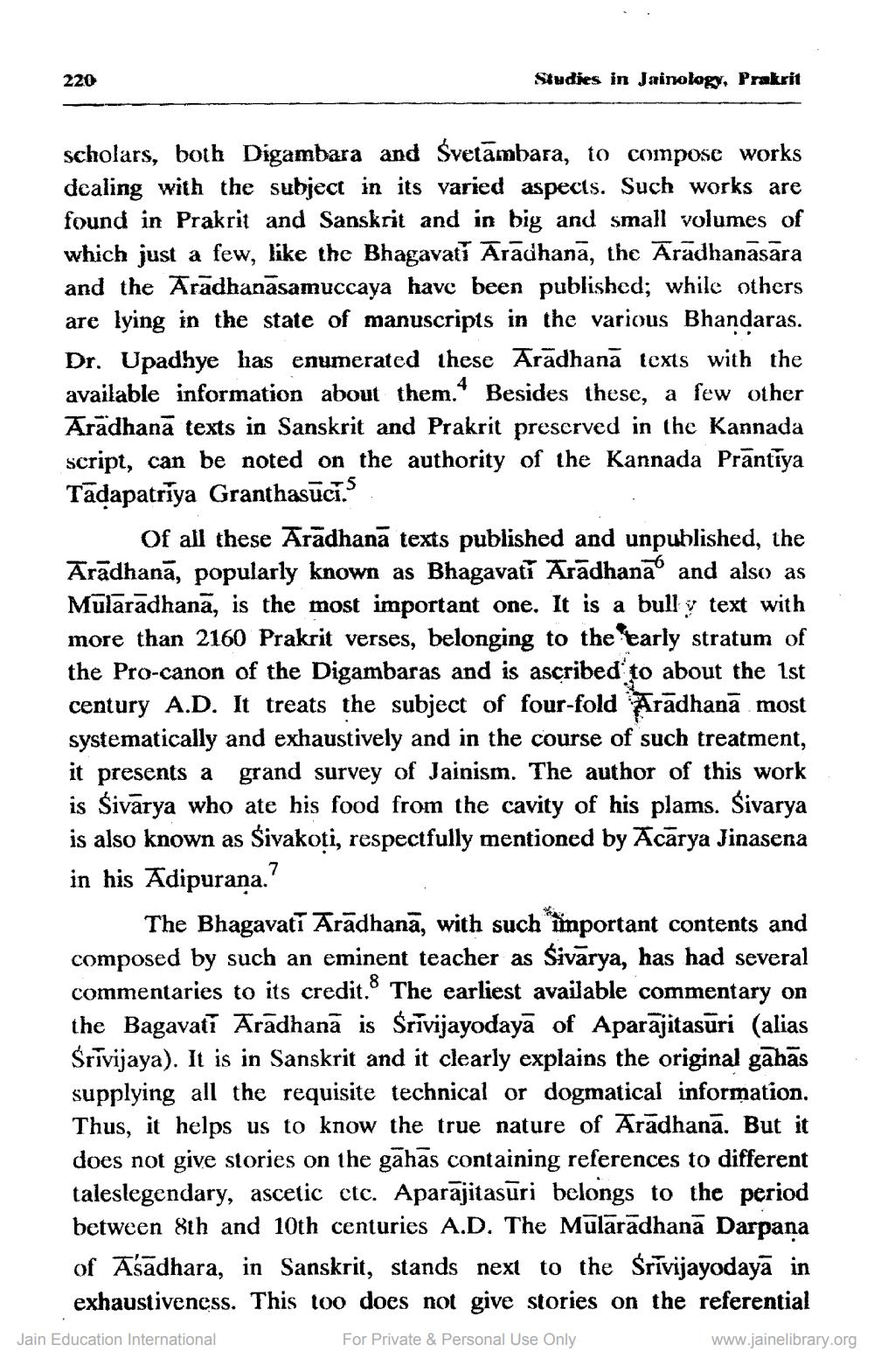________________
220
Studies in Jainology, Prakrit
scholars, both Digambara and Svetambara, to compose works dealing with the subject in its varied aspects. Such works are found in Prakrit and Sanskrit and in big and small volumes of which just a few, like the Bhagavati Aradhana, the Aradhanasara and the Aradhanāsamuccaya have been published; while others are lying in the state of manuscripts in the various Bhandaras. Dr. Upadhye has enumerated these Aradhana texts with the available information about them.4 Besides these, a few other Aradhana texts in Sanskrit and Prakrit preserved in the Kannada script, can be noted on the authority of the Kannada Prantiya Tadapatriya Granthasuci.5
Of all these Aradhanā texts published and unpublished, the Aradhana, popularly known as Bhagavati Aradhana and also as Mularadhana, is the most important one. It is a bully text with more than 2160 Prakrit verses, belonging to the early stratum of the Pro-canon of the Digambaras and is ascribed to about the 1st century A.D. It treats the subject of four-fold Aradhanā most systematically and exhaustively and in the course of such treatment, it presents a grand survey of Jainism. The author of this work is Śivarya who ate his food from the cavity of his plams. Šivarya is also known as Sivakoti, respectfully mentioned by Acarya Jinasena in his Adipurana.
The Bhagavati Aradhana, with such important contents and composed by such an eminent teacher as Śivarya, has had several commentaries to its credit. The earliest available commentary on the Bagavati Aradhanā is Śrīvijayodayā of Aparajitasūri (alias Śrīvijaya). It is in Sanskrit and it clearly explains the original gāhās supplying all the requisite technical or dogmatical information. Thus, it helps us to know the true nature of Aradhana. But it does not give stories on the gāhās containing references to different taleslegendary, ascetic etc. Aparajitasūri belongs to the period between 8th and 10th centuries A.D. The Mūlārādhanā Darpana of Asadhara, in Sanskrit, stands next to the Śrīvijayodayā in exhaustiveness. This too does not give stories on the referential For Private & Personal Use Only
Jain Education International
www.jainelibrary.org




